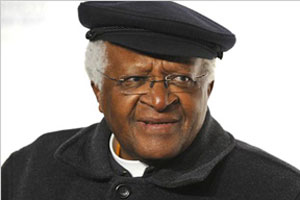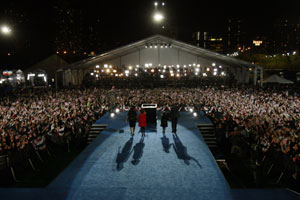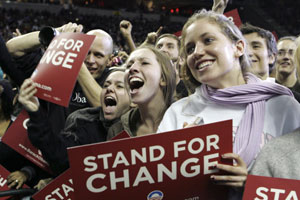Focus on America
Americans May Be Thinking About Identity in New Ways

Most scholars, writers, politicians and others agree that with the possible exception of the American Indian, to be American is to be, genealogically speaking, from somewhere else in the world. America.gov explores how choosing individual identity is an ever-shifting process.
“For we know that our patchwork heritage is a strength, not a weakness.”
— President Barack Obama, January 20, 2009
“Everywhere immigrants have enriched and strengthened the fabric of American life.”
— John F. Kennedy, A Nation of Immigrants, 1958
Washington — Multicultural, plural, post-ethnic, post-racial. While these descriptors are widely debated among American scholars, writers, politicians and others, it is usually not debated that with the possible exception of the American Indian, to be American is to be, genealogically speaking, from somewhere else in the world.
In addition, the heritage of individual Americans increasingly is from more than one part of the patchwork that is the fabric of America. Questions such as “Where are you from?” or “What is your background?” can draw complex responses as these individuals use words to identify themselves such as “multiracial,” “multiethnic” or “hybrid.”
As a result of the mingling of many ethnicities, America may be evolving from a multicultural nation to a nation of multicultural people. According to the United States Census Bureau, by 2050, the total “minority” population, which includes everyone except non-Hispanic, single-race whites, is projected to be 235.7 million out of a total U.S. population of 439 million, or nearly 54 percent.
Accordingly, the number of Americans who identify themselves as being of two or more races is projected to more than triple, from 5.2 million in 2008 to 16.2 million in 2050. The Census Bureau started collecting multiracial information in 2000, when census respondents were for the first time given the option of identifying themselves in more than one category in the question on race.
The U.S. Office of Management and Budget decided in 1997 that "mark one or more races" should be included in the census based on “evidence of increasing numbers of children from interracial unions and the need to measure the increased diversity in the United States,” according to the Census Bureau.
The decision sparked debate in America on the social and political impact of creating so many categories of race, but it also brought the idea of multiracial identity to the country’s collective consciousness. With the election of President Obama, who is of mixed race, the question of race or ethnicity, how much it matters and what Americans think about it has become a popular topic for discussion.
SO WHO IS AN AMERICAN?
For the month of February, America.gov is joining the discussion and exploring how the ever-increasing diversity of the U.S. population is affecting the way Americans identify themselves. Can Americans choose how and when to use ethnic heritage in describing themselves? If so, how do they decide which ethnicity to use? Can Americans choose not to be identified by any ethnicity or to use other social descriptors? Are all these choices part of being American?
A number of recent polls and other reports point to trends indicating shifts in American attitudes toward race and ethnicity that may be influencing how Americans think about their identities.
Recently on Focus on America
Desmond Tutu Awarded 2008 U.S. Fulbright Prize
 If peace and understanding could be human, then South African Archbishop Emeritus Desmond Tutu would be one of the best examples of these concepts because few have worked harder for them, often in the face of insurmountable odds.
If peace and understanding could be human, then South African Archbishop Emeritus Desmond Tutu would be one of the best examples of these concepts because few have worked harder for them, often in the face of insurmountable odds.
World Celebrates Barack Obama’s Historic Win
 In homes and on streets across the United States, Americans celebrated the election of the first African-American president as a significant moment in U.S. history.
In homes and on streets across the United States, Americans celebrated the election of the first African-American president as a significant moment in U.S. history.
“Youthquake” Expected in 2008 U.S. Election
 It is a historic presidential election, no matter what the outcome: Either an African American or a woman will be elected to one of the United States’ top two elected positions for the first time. But 18- to 29-year-olds also will be making history, as they turn out to vote in numbers projected to set new records.
It is a historic presidential election, no matter what the outcome: Either an African American or a woman will be elected to one of the United States’ top two elected positions for the first time. But 18- to 29-year-olds also will be making history, as they turn out to vote in numbers projected to set new records.